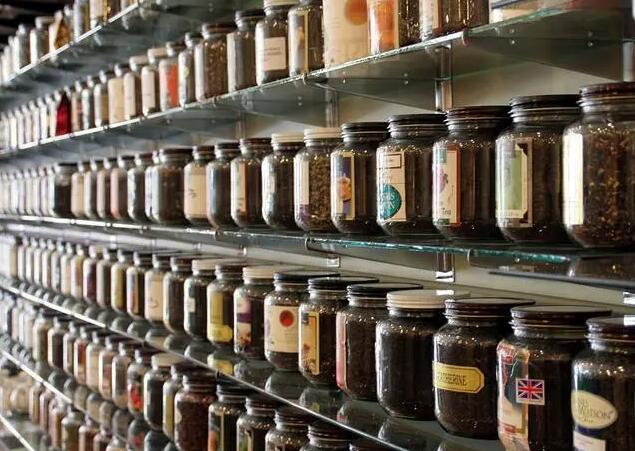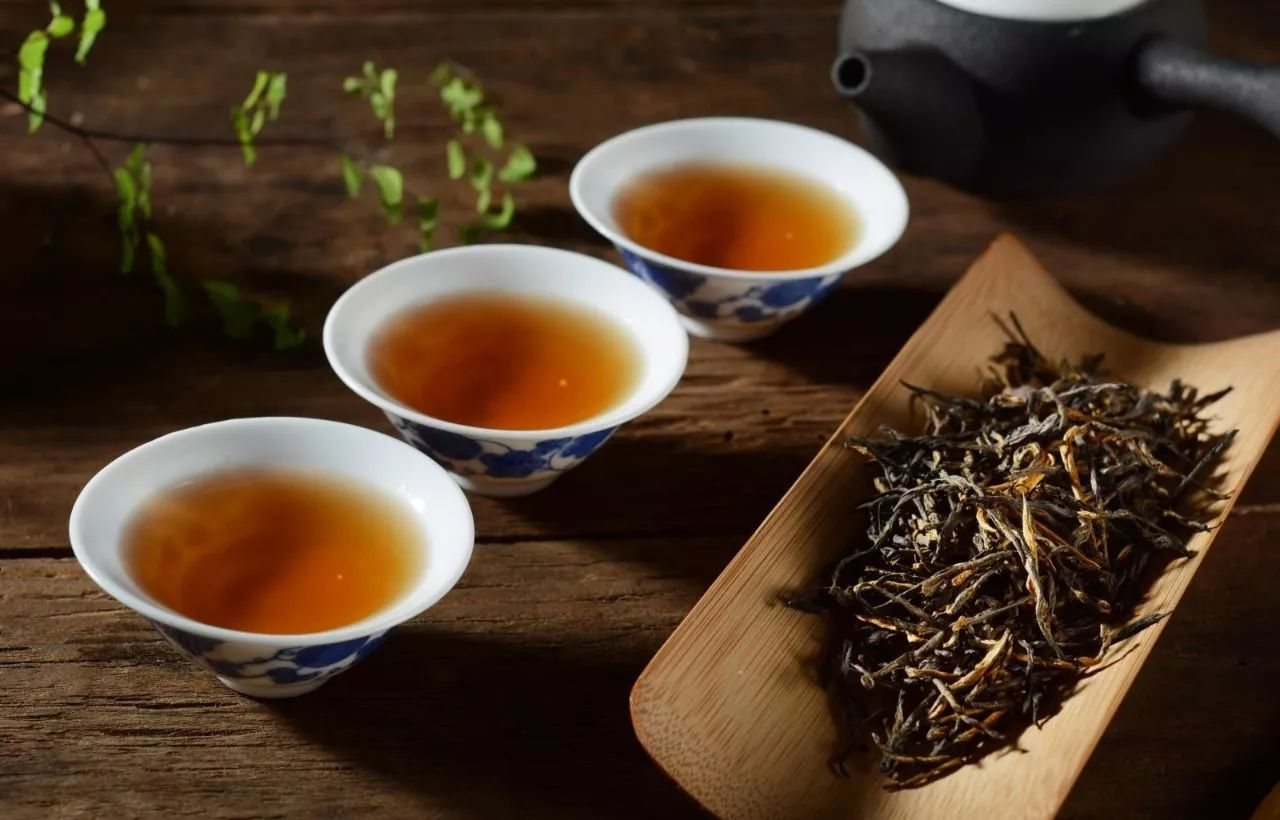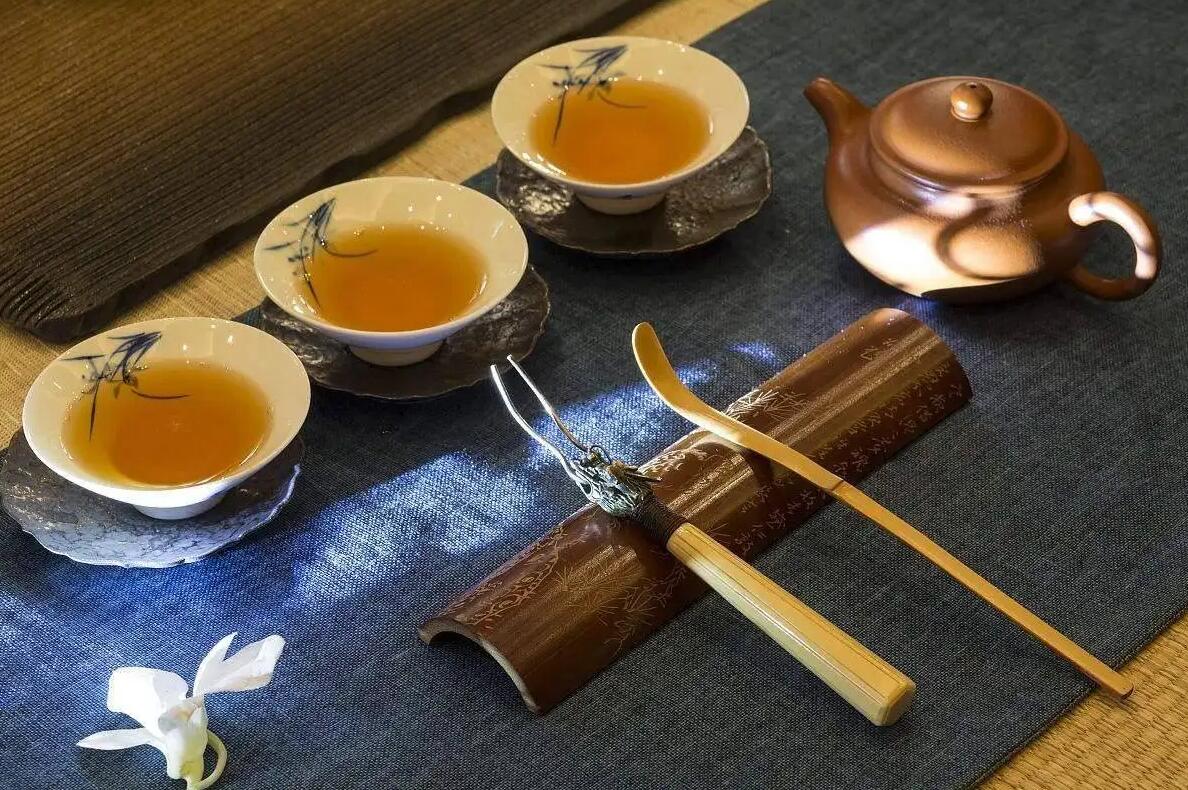Text by: Aaron Fisher
These last couple years, so much has changed in the tea world, especially the shifting winds from "South of the Clouds." The collapse of the Puerh market was something most experts had been predicting for several years, and therefore came as no surprise. In fact, many tea lovers sighed in relief as investors and others interested only in using Puerh tea as a means to profit withdrew their attention for other, more favorable harvests. Their attention over the last decade, especially the last five years, had facilitated so much change in Yunnan - both positive and negative. Now, for the most part, Puerh tea is being produced for those who view it as a tea to be drunk, now or later, and this - many hope - will not only stabilize the market, but also increase quality and help catalyze a return to the simpler days. But can tea in Yunnan really go back to the way it was before the Puerh boom?
Thanks to good teachers, as well as more than twenty visits to Yunnan, I have always been conscientious about my Puerh purchases. Vendors, of course, nod and tell you they agree and have exactly what you are looking for. In reality, so few do. The Puerh market over the past few years, to me, perfectly exemplifies many of the global patterns I find most disturbing: materialism, justified excess and perhaps most paramount, a complete disregard for Nature. So many beginners in the world of Puerh fell for the idea - and sometimes still do, even today after the bubble has burst - that it's better to have quantity than quality. They would prefer a big ox of market-floor,inorganic, plantation garbage from Kunming, Beijing or Guang Zhou markets, rather than one or two organic cakes from old-growth trees. But, as Nature repeatedly warns us in all and everything environmental, more is actually less and less is more.
For the most part, I have always avoided most large brand names when it conies to anything. The best food doesn't come from a chain. The best clothes arc handmade, as is the best teaware and tea. Most all the Pucrh tea promoted through these large markets is at best old-growth blended with plantation tea, and at worst completely harvested from plantations— many of which arc using very suspect pesticides in potentially harmful way/amounts. Remember, that Yunnan's development has happened at an incredibly rapid pace. The villages in most places had nice cars before there was even time to build roads; and anyone who has ever been to Xishuangbanna can testily to just how uncomfortable the ride to most tea-growing regions can be. If che development outpaced even the capacity to construct roads, what then could we say about all the new agricultural technology, methodology and even legal governance of this new industry? Obviously, the development outpaced the farmen's and factories' ability to learn proper use of agricultural chemicals (if, arguably, is such a thing), or the government's ability to create laws to not only protect the old-growth, trees, but to regulate the kinds and amounts of pesticides, chemical fertilizers and weed-killers being used. As a result, questionable methods have spread used, as Have pesticides that are illegal in the West; old-growth trees have been hacked down just to make a single harvest more convenient, and gardens hundreds of years old have been destroyed by unnecessary and/or improper use of chemical - mostly weed-killers when it comes to such old-growth gardens.
In the name of industry, whole areas of Yunnan have been converted into plantations. Sometimes existing plantations chat had been producing green or black tea have started processing the same tea into Puerh. Needless to say, the demand for Puerh tea has itself written a long list of environmental problems in Yunnan^ one that could go one for pages. There are also exceptions, even amongst the larger brand names, or at least some of their products. The problem is that every factory, every vendor. will cell you they are that exception.
Over the years various tea masters have gone to Yunnan and produced small amounts of higher-quality cakes, usually blended from old-growth tea (hat is organic, healthy and often supports a fair trade with the farmers themselves. The production costs of these cakes ensure (hat they are more expensive. Up until about 2005, I myself bought quite a few of these cakes from teachers like Zhou Yu, Chen Zhi Tong, Lin Ping Xiang, etc. After deciding that the market was a bit wild, and realizing I have more than enough tea for my needs, I stopped buying at that time - only purchasing a few cakes now and again over the next few years. I have little to no branded teas, for the reasons I mentioned above, based as much upon my experiences traveling to Yunnan as well as tasting the tea such factories produce.
This year, however, I noticed that many of these masters have themselves stopped producing Puerh tea. Zhou Yu, for example, has said publically that 2008 spring was his last production. He told me personally that he has said all he needs to about Puerh tea, and will therefore also write no more articles on the topic, especially since the last few of them were all more and more serious environmental warnings. He told me he wishes to devote more time to spreading tea culture and educating consumers and tea lovers, which he feels is a much better way to solve these problems than by producing high-quality tea in an ecologically sound way. When I pressed him further, he changed the subject, perhaps suggesting that I think through these things on my own, which was exactly what I intended to do.
Zhou Yu isn't the only master I know who has ceased or drastically reduced their production of Puerh tea. Obviously, some of the people who have stopped investing have done so because they are unsure of their ability to sell the tea, but I think that can't completely explain this trend. After all, it is only the investors that have left the Puerh world not tea lovers like myself and tea lovers will always create a demand for high-quality tea.
As I thought through these problems over the course of the last six months, I realized that the issue was indeed very complicated. I decided to write down my thoughts and share them here, more because my conclusions really just open more doors and elicit the need for more dialogue, sharing ideas. I really feel that the growing Western interest in Yunnan, and Puerh tea, can have a very positive influence on these issues.
Besides the obvious environmental issues, why wouldn't we want to go to Yunnan, seek out farmers and produce tea in ecologically sound ways - supporting the farmers themselves and helping to protect the old gardens? As I sipped and sipped this question, I realized that the aboriginal farmers in Yunnan were repeating a drama that has played out around the world again and again for the last two hundred years or more, where/whenever the main-stream. industrial world (so-called "progress") has interacted with them. Let's try to keep our discussion specific, though: On the one hand. we want the aboriginal farmers in Yunnan to improve their lives, have better housing, plumbing, education, etc. But, on the other hand. such growth towards modern lifestyle has proven to be poisonous for indigenous cultures throughout the world. Will it be the same for the aboriginal people of Yunnan?
Throughout the years that I have been drinking aged Puerh tea by clay tea cup, I've often wondered about why the tea made long ago is so much better than that produced now. The first obvious observation I've had is that the Earth was cleaner back then. There was less air pollution, water pollution, etc. The farming and processing techniques were simpler, even in the factories of the Masterpiece and Chi Tse Eras. But then, I wondered, what about the people producing the tea back then. Don't their diets, lifestyle, culture and even minds play a role in the production of the tea? After all, what is great tea if not a dialogue between the farmer and Nature? And wouldn't a man who spent his free time watching the stars, eating all organic foods from the mountain and then producing his tea in that same way do so closer to the way Nature suggests?
I have been to many factories in Yunnan. They aren't located near the mountains much anymore, though they used to be - you can visit the abandoned Menghai factory in Nannou for example. And if you go back to the Antique Era, Puerh produced by brands like ''Song Ping" or "Tong Xing" was done so in family factories in the villages themselves. This means that even after the maocha was produced the cakes themselves were compressed using; steam generated from the same mountain water that had nurtured the trees, condensing once again in the cakes themselves, which were then dried in the same mountain air.
Nowadays, the factories in the cities employ young, urban workers. They listen to music, surf the Internet and think about anything from the movie they saw recently to the brand-name clothes they're going to buy with their next paycheck. This isn't to say that the minds of the farmers a hundred years ago also didn't wander as they worked; but wandered to what and to what effect? The water and environment of the factory is industrial, sometimes unhygienic - depending on the factory. Doesn't this all affect the tea? You can't help but wonder if all these subtle factors - like that the one couching the tea ate McDonalds for lunch and smoked a Marlboro afterwards, rather chan mountain grown vegetables and a pipe — all add up in the final product, even if any one of them is indistinguishable to all but the most sensitive of tea drinkers.
Of course, many of the villagers in Yunnan are still living rather simply, which is why it is good that many tea lovers and masters have gone there and bought their teas, teaching them to respect and protect the old-growth gardens, and to try to produce teas in more ecologically sound ways. This tea is better for everyone. And yet, still, it raises the aforementioned question again: what will the aboriginal people do with the money? Of course, we want them to have better roads, but then when they use their newly-earned money to send their children to the city to attend school there, will future generations have any desire to learn to farm tea? Will they lose their cultural heritage in the city? And when the villagers all have TV's, radios and Internet — when that energy has itself moved into the mountains - will the tea be the same? Does the wifi of the villagers' new cell phones and the noise of the music and television get into the plants? And if so, what effect does it have on these old trees, accustomed as they are to silence, after so many eons of living in such peaceful forests? We all know about the power tourism has to destroy the natural beauty it exploits. Could you say that in coming from the city to the mountains, whether as tourists or tea producers, with cameras and electronics) that we ourselves further this change, good or bad?
At the same time, we have a responsibility to try to protect the environment and the old-growth gardens. Many villagers have learned a lot through the Puerh boom, and as a result large tracts of land are being protected now. No one would doubt that this is a positive thing. It is also possible that in chinking in either-or terms, to participate or not, the issue is oversimplified — that the Puerh industry is too complex to even be discussed in a general, sweeping manner when case by case analysis is needed.
Growing up in America, on bloodied soil, has taught me what it is like to regret the loss of an indigenous culture, especially since it is often their lifeways that we so-called "mainstream" should be studying, rather than vice versa. After all, the aboriginal people in Yunnan farmed tea for thousands and thousands of years without upsetting the balance of Nature - something modern industry has achieved in just decades. The respect for Nature and simple life of indigenous peoples, though not without flaw, has a wisdom of its own. I'm not deluded when it comes to my own country and heritage, either. I know that there were aspects of Native American cultures that were not positive, or useful to me in this life. Nor should they be glorified into unrealistic utopia. And yet, no one would doubt the moral depravity of what happened to them. Furthermore, even now, there is so much that we stand to learn from their traditions and lifestyles, from both long ago and in respect of those who even now continue to preserve those customs. I also believe this applies to the aboriginal cultures of Yunnan, as well as their traditional agriculture and tea production.
As we move forward into a new era of Puerh tea, I think these questions are very important. Are the masters like Zhou Yu correct in that we should all back off for a while and let things cool down? Will our meddling only cause as many problems as it solves? Or should we more actively seek out ways to help preserve the aboriginal cultures in Yunnan, and teach them to respect and protect the old-growth gardens, creating higher-quality and healthier teas? As I mentioned, I really feel that Western influence and input can indeed have a role to play, especially as our culture more and more permeates modern China, even into the corners like Yunnan.
Let us, then, heat up another kettle, steep some leaves and between sips discuss these issues. In the least, as individual consumers. we can affect the market in what we do or don't buy, for how much and from whom. In that way, if nothing else, our conversations are practical.



